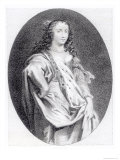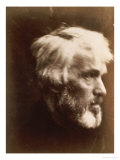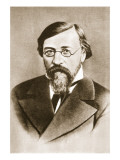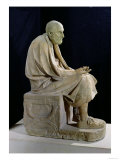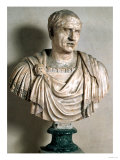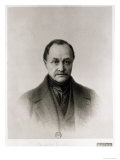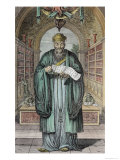|
|
|
|
|
Ernst Cassirer
b. 7-28-1874; Breslau, Germany (now Poland)
d. 4-13-1945; New York
Philosopher Esrnt Cassirer developed a philosophy of culture out of the tradition of neo-Kantianism. He left Germany, and his post as a professor at the University of Hamburg, when the Nazi's came to power.
Ernst Cassirer quotes ~
• “No former age was ever in such a favorable position with regard to the sources of our knowledge of human nature. Psychology, ethnology, anthropology, and history have amassed an astonishingly rich and constantly increasing body of facts. Our technical instruments for observation and experimentation have been immensely improved, and our analyses have become sharper and more penetrating. We appear, nevertheless, not yet to have found a method for the mastery and organization of this material.... Unless we succeed in finding a clue of Ariadne to lead us out of this labyrinth, we can have no real insight into the general character of human culture; we shall remain lost in a mass of disconnected and disintegrated data which seem to lack all conceptual unity.” ~ from the Introduction to An Essay on Man (1944)
|
|
|
|
Margaret Cavendish (née Lucas), Duchess of Newcastle
b. 1623; England
d. 12-15-1673
Margaret Cavendish, an attendant of Queen Henrietta Maria, was a poet, philosopher, writer of romances (her romance, The Blazing World, is one of the earliest examples of science fiction), essayist, and playwright who published under her own name at a time when most women writers published anonymously. She addressed topics ranging from “gender, power, manners, scientific method, and animal protection”.
Margaret Cavendish quotes ~
• “Marriage is the grave or tomb of wit.”
• “Indeed, I was so afraid to dishonour my friends and family by my indiscreet actions, that I rather chose to be accounted a fool, than to be thought rude or wanton.”
• Paper Bodies: A Margaret Cavendish Reader
|
|
|
|
Thomas Carlyle
b. 12-4-1795; Ecclefechan, Dumfries and Galloway, Scotland
d. 2-5-1881; London
Thomas Carlyle was a highly influential essayist, satirist, philosopher and historian during the Victorian era and on the thinking of the Transcendentalists. He was also a mathematics teacher.
Carlyle's crisis of faith was representative of the new social order being brought about by the Industrial Revolution and scientific inquiry.
Thomas Carlyle quotes ~
• “Culture is the process by which a person becomes all that they were created capable of being.”
• “History shows that the majority of people that have done anything great have passed their youth in seclusion.”
• “If you are ever in doubt as to whether to kiss a pretty girl, always give her the benefit of the doubt.”
• “In the long-run every Government is the exact symbol of its People, with their wisdom and unwisdom; we have to say, Like People like Government.”
• “The spiritual is the parent of the practical.”
• “To reform a world, to reform a nation, no wise man will undertake; and all but foolish men know, that the only solid, though a far slower reformation, is what each begins and perfects on himself.”
• A Carlyle Reader
|
|
|
|
Nikolay Gavrilovich Chernyshevsky
b. 7-12-1828; Saratov, Russia
d. 10-17-1889; Russia
Materialist philosopher, utopian socialist, revolutionary and author Nikolay Chernyshevsky was a founder of Russian populism known as Narodism. He agitated for the revolutionary overthrow of the autocracy and the creation of a socialist society based on the old peasant commune.
Among those who influence Charnyshevsky was Ludwig Andreas Feuerbach, Charles Fourier, Mikhail Bakunin, and Robert Owen. Chernyshevsky was influential on Vladimir Lenin, Emma Goldman, and Maxim Gorky. Some consider his novel “What Is to Be Done?”, to have created far more emotional dynamic than Marx's Das Kapital, to make the Russian Revolution, and Dostoyevsky wrote Notes from the Underground as a reaction against Chernyshevsky's naivete expressed in the book.
FYI ~ The fourth chapter of Vladimir Nabokov's The Gift has the protagonist, Fyodor Godunov-Cherdyntsev study Chernyshevsky and write the critical biography.
|
|
|
|
Noam Chomsky
b. 12-7-1928; Philadelphia, PA
Noam Chomsky is a linguisitcs and analytic philosopher well known as a political dissident, anarchist and libertarian socialist.
Chomsky was cited as a source more often than any other living scholar from 1980 to 1992, and is also the eighth most cited source of all time.
He is currently professor emeritus of linguistics at the Massachusetts Institute of Technology.
Noam Chomsky quotes ~
• “Roughly speaking, I think it's accurate to say that a corporate elite of managers and owners governs the economy and the political system as well, at least in very large measure. The people, so-called, do exercise an occasional choice among those who Marx once called "the rival factions and adventurers of the ruling class.”
• “The most effective way to restrict democracy is to transfer decision-making from the public arena to unaccountable institutions: kings and princes, priestly castes, military juntas, party dictatorships, or modern corporations.”
• “As long as some specialized class is in a position of authority, it is going to set policy in the special interests that it serves. But the conditions of survival, let alone justice, require rational social planning in the interests of the community as a whole, and by now that means the global community.”
|
|
|
|
Chrysippus
b. 280 BC; Greece
d. 207 BC
Chrysippus, a prolific writer, is described as the “Second Founder of Stoicism” for expanding the fundamental doctrines of Zeno of Citium.
Chrysippus quotes ~
• “Thought is the fountain of speech.”
• “...the prophecies of the diviners would not be true if all things were not encompassed by fate.”
• Chrysippus' on Affections: Reconstruction and Interpretations
|
|
|
|
Cicero
b. 1-3-106 BC; Arpinum, Rome
d. 12-7-43 BC; Formia
Marcus Tullius Cicero, a philosopher, statesman, lawyer, and political theorist, is considered one of Rome's greatest orators and writers.
Today, Cicero is appreciated primarily for his humanism and philosophical and political writings.
Cicero quotes ~
• “A home without books is a body without soul.”
• “According to the law of nature it is only fair that no one should become richer through damages and injuries suffered by another.”
• “An unjust peace is better than a just war.”
• “Any man is liable to err, only a fool persists in error.”
• Cicero: The Life and Times of Rome's Greatest Politician
|
|
|
|
Auguste Comte
b. 1-15-1798; Montpellier, France
d. 9-5-1857
Auguste Comte was one of the founders of sociology (L. socios, “companion” + ology, “the study of”, and the philosophy of positivism which means that the only authentic knowledge is based on actual sense experience that has been tested by scientific methods.
His Law of Three Stages states that society as a whole, and each particular science, develops through three mentally conceived stages: (1) theological, (2) metaphysical, (3) positive. Sociology was the highest expression of the positive.
Auguste Comte quotes ~
• “Each department of knowledge passes through three stages. The theoretic stage; the theological stage and the metaphysical or abstract stage.”
• “Men are not allowed to think freely about chemistry and biology: why should they be allowed to think freely about political philosophy?”
• Introduction to Positive Philosophy by Auguste Comte
|
|
|
|
Confucius
b. 9-28-551 BC; China
d. 479 BCE
Confucius is a much celebrated Chinese philosopher and teacher. Perhaps his greatest teaching is “never impose on others what you would not choose for yourself”.
Jesuit missionary to China, Matteo Ricci, and Chinese scholar Xu Guangqi, were the first to translate Confucianism text into a western language.
Confucius quotes ~
• “Choose a job you love, and you will never have to work a day in your life.”
• “Do not impose on others what you yourself do not desire.”
• “Heaven means to be one with God.”
• “If you think in terms of a year, plant a seed; if in terms of ten years, plant trees; if in terms of 100 years, teach the people.”
• “A picture is worth a thousand words.” erroneously attributed to Confucius
• The Analects of Confucius
|
|
|
previous page | top | next
social studies > list notable philosophers > a | b | C | d | e | f | g | h | i-l | m | n-o-p | q-r | s | t-z < science
|
|
I have searched the web for visual, text, and manipulative curriculum support materials - teaching posters, art prints, maps, charts, calendars, books and educational toys featuring famous people, places and events - to help teachers optimize their valuable time and budget.
Browsing the subject areas at NetPosterWorks.com is a learning experience where educators can plan context rich environments while comparing prices, special discounts, framing options and shipping from educational resources.
Thank you for starting your search for inspirational, motivational, and educational posters and learning materials at NetPosterWorks.com. If you need help please contact us.
|
|
|









